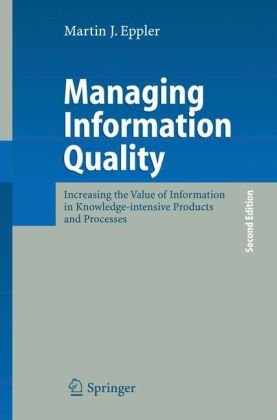

Most ebook files are in PDF format, so you can easily read them using various software such as Foxit Reader or directly on the Google Chrome browser.
Some ebook files are released by publishers in other formats such as .awz, .mobi, .epub, .fb2, etc. You may need to install specific software to read these formats on mobile/PC, such as Calibre.
Please read the tutorial at this link: https://ebookbell.com/faq
We offer FREE conversion to the popular formats you request; however, this may take some time. Therefore, right after payment, please email us, and we will try to provide the service as quickly as possible.
For some exceptional file formats or broken links (if any), please refrain from opening any disputes. Instead, email us first, and we will try to assist within a maximum of 6 hours.
EbookBell Team

5.0
110 reviews
ISBN 10: 3540314083
ISBN 13: 9783540314080
Author: Martin J Eppler
Part I: The Strategic Imperative of Information Quality
Part II: Foundational Elements of Information Quality Management
Part III: Methodologies and Technologies for Enhancing Information Quality
Part IV: Managing IQ in Specific Contexts and Knowledge-Intensive Processes
Part V: Implementing and Sustaining Information Quality Programs
managing information quality
management of information quality in mis
managing quality in project management
what is information quality in mis
manage quality vs control quality
Tags: Martin J Eppler, Knowledge, intensive